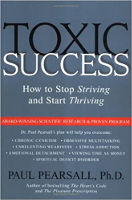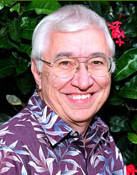
Image by Free-Photos from Pixabay
Narrated by Marie T. Russell.
"Fight or flight! That's the only way we cope with stress," said my professor years ago. For more than sixty years, our competitive nature has been assumed to be related to our built-in sympatho-adreno-medulary (SAM) response system. This is our automatic alarm state that pushes our body to the max so we can do something very aggressive to win over a predator or perceived source of severe stress, or to hightail it away as quickly as possible.
When we feel challenged, our sympathetic nervous system becomes activated and we become agitated. Hormones are released that signal the middle (medulla) area of the adrenal glands, which, in turn, secretes large amounts of stress hormones to help us confront or run away.
This SAM system can have a devastating effect on our body by lowering our immune system and overextending our heart and circulatory system. It is a full assault- or retreat-system, and it is at the root of our chronic competitiveness.
Other than Fight-or-Flight Mode?
Psychologist Walter Cannon conducted the classic research on the SAM-mediated fight-or-flight response. With laboratory research conducted primarily on male rats, he showed that our body reacts to stress through a sympathetic nervous system surge and associated stress-hormone release sequence. It was assumed that the fight-or-flight response was our only natural intense reaction to perceived stress, but new research by psychologist Shelly Taylor at the University of California, Los Angeles, and her colleagues suggests that learning from male rats has its serious limitations.
Taylor's research indicates that we do not always have to think of ourselves as in competition against others and the world. No matter how normal the fight-or-flight response has become, we have a choice of another, less toxic way of dealing with stress. She calls it the "tend-and-befriend response," and it is related to McClelland's RAS (relaxed affiliation syndrome).
Taylor's conclusions are based on the discovery that females tend to respond to stressful situations by first thinking about protecting themselves and their children rather than attacking the threat. They do so through nurturing rather than aggressive behaviors -- "tending" rather than "competing". They also are more likely to deal with stress by thinking about how to form alliances with an extended social group -- "befriending" rather than giving up and fleeing.
As wives know, men seem more often to fight or take flight when they feel challenged or confronted, while the women turn to taking care of what matters most and seeking support in doing so.
A Non-Competitive Response to Stress
Evolution of a "second" kind of response to stress may be related to the way our ancestors spent their days. While their cavemen were busy competing, fighting, and fleeing, cave women were home at the cave busy caring, tending, and befriending. They were the primary caretakers of the children, and getting killed fighting or deserting their offspring by running away would not have allowed their children -- their genes -- to continue.
The sweeter success I am suggesting is based on a more selective stress-survival approach. By using our capacity to attend, we can mentally select the stress response that best matches the situation -- reflecting rather than just reacting.
Even though both genders suffer from it, toxic success is related to the dominance of the male way of giving meaning to life, love, and working. Being aware that loving and connecting can be as effective a stress mediator as competition or surrender is a helpful step in taking at least some of the toxicity out of success.
Now more than ever, I believe my mother's warning was right. Just because "everyone else is doing it", and trying to be successful in the normal way, does not mean we have to or should do so. We do not have to be like cartoon characters running off a cliff with legs churning so fast they are a blur. We do not have to be propelled over the leading edge by toxic success's mixture of momentum and ignorance.
If we don't pay attention to the toxic nature of success, we can end up taking a terrible fall. When we realize that the hormonal rush of competition can keep us going for only so long, our momentum will eventually slow and the gravity of our situation will drag us back down to the realization that we are not thriving. Instead, we are striving ourselves crazy.
Reprinted with permission of the publisher,
Inner Ocean Publishing, Inc. ©2002, 2004.
www.innerocean.com
Article Source:
Toxic Success: How to Stop Striving and Start Thriving
by Paul Pearsall, Ph.D.
 Dr. Pearsall directly challenges many of the self-help conventions, which he finds are not solutions but part of the problem. His detoxification program has helped many TSS patients to sweeten it up by changing their mindset and taking back their attention, focusing on what they need, not what they want.
Dr. Pearsall directly challenges many of the self-help conventions, which he finds are not solutions but part of the problem. His detoxification program has helped many TSS patients to sweeten it up by changing their mindset and taking back their attention, focusing on what they need, not what they want.
About the Author
 Paul Pearsall, Ph.D. (1942-2007) was a licensed clinical psychoneuroimmunologist, a specialist in the study of the healing mind. He held a Ph.D. in both clinical and educational psychology. Dr. Pearsall has published more than two hundred professional articles, written fifteen best-selling books, and has appeared on The Oprah Winfrey Show, The Monte/ Williams Show, CNN, 20/20, Dateline, and Good Morning America.
Paul Pearsall, Ph.D. (1942-2007) was a licensed clinical psychoneuroimmunologist, a specialist in the study of the healing mind. He held a Ph.D. in both clinical and educational psychology. Dr. Pearsall has published more than two hundred professional articles, written fifteen best-selling books, and has appeared on The Oprah Winfrey Show, The Monte/ Williams Show, CNN, 20/20, Dateline, and Good Morning America.
Visit his website at www.paulpearsall.com.
























